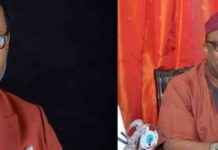After more than three months since the parliamentary elections in Georgia, the country finds itself in a state of political turmoil. The ruling party, Georgian Dream, claimed victory in the elections, securing a significant majority in parliament. However, international organizations, notably the Organization for Security and Co-operation in Europe (OSCE), raised concerns about the legitimacy of the election process and the pressure on voters.
Opposition Boycott and Civil Unrest
In response to the disputed election results, opposition parties in Georgia have refused to acknowledge the outcome and are boycotting the current parliament. This move escalated tensions, leading to widespread protests across the country. Ordinary citizens, along with opposition leaders, have taken to the streets to voice their dissatisfaction with the political situation.
The protests were triggered by Prime Minister Irakli Kobakhidze’s decision to suspend talks on Georgia’s bid to join the European Union for four years. This decision, coupled with allegations of election rigging, fueled demands for new elections and the release of imprisoned demonstrators. Elene Khoshtaria, a prominent figure in the opposition, emphasized the importance of challenging the government’s legitimacy through peaceful protests and civil disobedience.
Consolidation of Power and Repressive Legislation
With the opposition boycotting parliament, the Georgian Dream party has seized control of legislative proceedings, passing a series of controversial laws. One such law involved the appointment of former soccer player Mikheil Kavelashvili as the new president, a move criticized for lacking transparency and opposition input. The government also introduced laws restricting foreign influence on media and civil society organizations, drawing parallels to repressive measures in other countries.
Further amendments to existing laws have curtailed the rights of NGOs, civil society, and the media, eroding democratic principles in Georgia. Clashes between security forces and protesters led to the imposition of stringent regulations on public demonstrations, including bans on masks, fireworks, and lasers. Additionally, penalties for hooliganism and disobedience were increased, signaling a crackdown on dissenting voices in the country.
Political scientist Gela Vasadze highlighted the parliament’s role in legitimizing authoritarian measures adopted by the government. He expressed concerns about the erosion of democratic norms and the consolidation of power in the hands of a few. Despite the boycott by opposition politicians, Vasadze argued that the government’s authoritarian tendencies remained unchecked, with little regard for dissenting voices.
In conclusion, the political landscape in Georgia remains fraught with tension and uncertainty as the ruling party tightens its grip on power. The ongoing protests and opposition boycott reflect a deepening crisis of legitimacy and governance in the country. As Georgia navigates this turbulent period, the future of its democracy hangs in the balance, with implications that extend far beyond its borders.



























